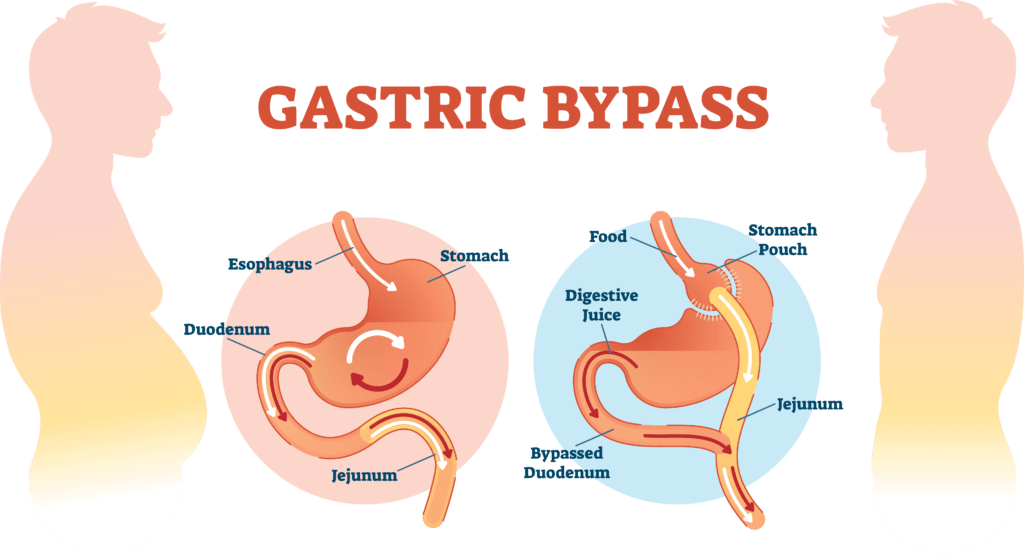The gastric bypass is the gold standard and most commonly performed bariatric surgery in the world and works so well due to a number of different factors coming together. It has been suggested for some time that our gut microbiomes are one of the keys to successful weight loss. In fact, studies have shown that the Roux-en-Y gastric bypass not only impacts the amount of space available for food, but also drastically effects our gut microbes, further helping us along in our journeys. This article will focus on the relationship to the gastric bypass and its relationship with our gut microbiome and how that helps facilitate weight loss.
What is the Gut Microbiome?
The gut houses over 70% of the bacteria in our bodies and can impact everything from how we feel to the foods we like to eat and the way that our bodies digest food. Whilst this might sound off-putting, the bacteria found in our gut is incredibly important when it comes to our overall health. A study reported that diseases such as obesity, type 2 diabetes, asthma, allergies, and atopic diseases, IBD, necrotizing enterocolitis, and atherosclerosis are closely associated with the intestinal microbiota (ref 1). It is, therefor, important to note that individuals struggling with obesity have less variability in this gut microbiome than those at a healthier weight (ref 2).
The Microbiome After the Gastric Bypass
As previously mentioned, the gut microbiome after the gastric bypass is significantly altered. This is generally put down to the drastic change in the shape of the stomach as well as the significant alterations in diet that patients are expected to make in those weeks immediately after their bariatric surgery. This new diet, generally drastically different to what the gut microbes are used to, can change the balance of the dominant microbiota present. As a result of surgery there is also a recorded shift in pH – namely that it increases as the volume of the stomach shrinks. This new pH favours microbes called Firmicutes and Actinobacteria, while levels of Bacteroidetes decrease (ref 3).
It is interesting to note that you microbiota are also partly responsible for the reduction in ghrelin (hunger hormone), although this relationship is yet to be fully understood.

Speak to the Medical Weight Loss Specialists
Get in touch with the team at Allure Weightloss today. Our patient advisors will be able to talk through all our options with you. All our procedures are backed by GMC registered consultants at the top of their respective fields. We also provide what we see as an essential aftercare service that includes support from one of our nurses and HCPC registered dietitians. Call 0345 512 0094 or email info@allureweightloss.com. Alternatively, you can fill out our online enquiry form.
Allure Weightloss is a CQC registered provider of medical weight loss in the UK.

References
- Patel RM, Denning PW. 2015. Intestinal microbiota and its relationship with necrotizing enterocolitis. Pediatr Res 78: 232–238. [PMC free article] [PubMed] [Google Scholar]
- Turnbaugh PJ, Hamady M, Yatsunenko T, Cantarel BL, Duncan A, Ley RE, Sogin ML, Jones WJ, Roe BA, Affourtit JP, Egholm M, Henrissat B, Heath AC, Knight R, Gordon JI. 2009. A core gut microbiome in obese and lean twins. Nature 457: 480–484. [PMC free article] [PubMed] [Google Scholar]
- Murphy R, Tsai P, Jüllig M, Liu A, Plank L, Booth M. 2017. Differential changes in gut microbiota after gastric bypass and sleeve gastrectomy bariatric surgery vary according to diabetes remission. Obes Surg 27: 917–925. [PubMed] [Google Scholar]

